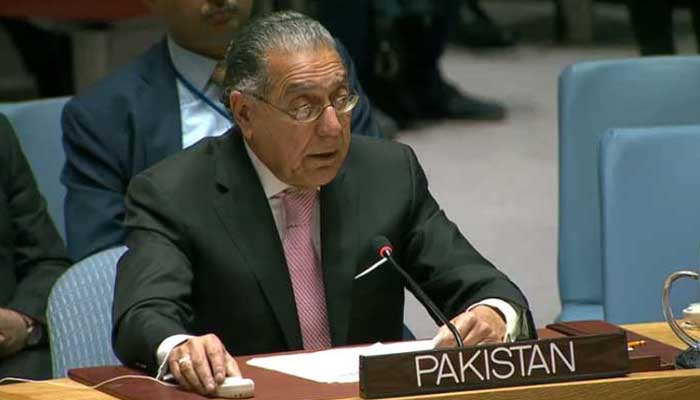G-4 demand violates principle of sovereign equality of states: Munir
Pakistan has made a strong case against creating new permanent seats on the United Nations Security Council, saying an increase in the number of non-permanent members would make the 15-member body more representative, democratic and effective.
“The only criteria for Security Council membership set out in the UN Charter is for the election of non-permanent members,” Pakistan Ambassador to UN Munir Akram told delegates when the deadlocked Inter-Governmental Negotiations (IGN) aimed at restructuring the Council resumed on Thursday.
The Pakistani envoy also underscored the need for flexibility to achieve the required consensus among all UN member states to overcome the stalemate in the reform negotiations.
“Unfortunately, consensus on Security Council reform has been impeded, from the outset, by the demand of four countries that they be selected as new permanent members in an expanded Security Council,” he said, referring to the relentless campaign by India, Brazil, Germany and Japan, known as the Group of Four, for elevated status.
“Their demand violates the principle of sovereign equality of States; it ignores the reality that permanent membership and the veto are often the cause of the Council’s inaction,” Ambassador Akram said.
Full-scale negotiations to reform the Security Council began in the General Assembly in February 2009 on five key areas – the categories of membership, the question of veto, regional representation, size of an enlarged Security Council, and working methods of the council and its relationship with the General Assembly.—APP










